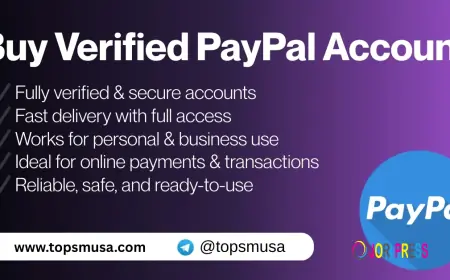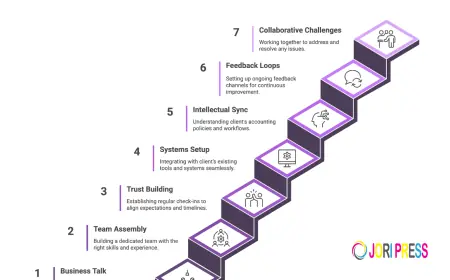Free Zone vs Mainland Branch: New Dubai 2025 Rules with Mainland Access
Discover Dubai's 2025 rules for Free Zone and Mainland branches. Get clarity on access, compliance & business setup in Dubai. Start right today.

Dubai continues to be one of the most attractive destinations for entrepreneurs and investors. With the UAE's push for global business leadership, the 2025 updates to company laws are reshaping how businesses operate, especially when it comes to choosing between a Free Zone company and a Mainland branch.
If you're considering company registration in Dubai or thinking about expanding your current Free Zone entity, it’s crucial to understand what the new rules mean for you.
Let’s break down the differences, the latest regulations, and which structure suits your goals in 2025.
The Basics: Free Zone vs Mainland
Before diving into what’s new, let’s recap the two primary business jurisdictions in Dubai:
Free Zone
A Free Zone is a designated area where foreign investors can own 100% of their company without the need for a local partner. These zones are often sector-specific (e.g., tech, media, logistics) and offer benefits like:
- Tax exemptions (corporate and personal)
- Simplified import/export procedures
- Quick company setup processes
- Full repatriation of profits
However, traditionally, Free Zone companies could only operate within the zone itself or outside the UAE—not directly in the mainland market.
Mainland
A Mainland company is licensed by the Dubai Department of Economy and Tourism (DET) and can freely do business anywhere in the UAE. These companies were once required to have a local Emirati sponsor owning 51%, but ownership rules have evolved in recent years.
What's New in 2025?
The big change in 2025 is the formal introduction of broader mainland access for Free Zone branches, particularly for companies that meet compliance benchmarks and industry-specific conditions.
Here’s what that means in practical terms:
1. Free Zone Branches Can Operate in the Mainland (With Conditions)
Under the updated rules, Free Zone entities can now establish branches that are allowed to conduct business on the mainland, provided:
- They register with the Dubai Department of Economy and Tourism (DET)
- They obtain the appropriate operating permits
- They comply with UAE tax and labor laws
- They are in industries that are not restricted or require special approval (e.g., legal, healthcare, real estate)
This means that you can maintain the benefits of your Free Zone base while extending operations legally into the broader UAE market—something previously limited or heavily regulated.
2. No More Dual Licensing—Unified Compliance Required
Previously, some Free Zones allowed "dual licensing," enabling Free Zone companies to apply for a second license with DET. This approach is being phased out in favor of a unified compliance model, where branch operations are directly integrated and registered under mainland laws.
So, if you're planning a business setup in Dubai with both Free Zone and mainland presence, expect a single registration flow and unified auditing and tax reporting systems.
3. Corporate Tax Compliance Is Now Mandatory
With the introduction of a 9% UAE corporate tax in 2023 (on profits over AED 375,000), Free Zone companies accessing the mainland through branches must comply fully with corporate tax rules, including:
- Annual financial audits
- Economic substance reporting (for relevant sectors)
- Tax registration and return filing
This marks a shift from the previous environment where Free Zone companies in Dubai enjoyed broad tax exemptions, even when indirectly serving mainland clients.
Pros and Cons: Which is Right for You?
Choosing between a Free Zone and a Mainland branch depends on your business model, target market, and compliance capabilities.
Free Zone Company
Best for: Export-focused businesses, digital services, international trading, startups
Pros:
- 100% foreign ownership
- Simplified setup and lower costs
- Custom incentives for certain sectors
- Fast visa processing
Cons:
- Restricted direct access to the UAE mainland
- Limited to working with mainland clients through agents or branches
- Subject to Free Zone-specific rules
Mainland Branch or Company
Setting up a business in mainland Dubai has some pros and cons, and they are as follows:
Best for: Businesses targeting the UAE consumer market, physical retail, and B2B services
Pros:
- Full access to the UAE market
- No local sponsor required for most activities (100% foreign ownership now allowed in many sectors)
- Flexibility in choosing office locations
Cons:
- Higher setup and compliance costs
- Stricter regulations and annual audits
- VAT and corporate tax obligations
Can You Start in a Free Zone and Expand Later?
Yes—and that’s actually a popular path. Many entrepreneurs start their business setup in Dubai through a Free Zone for cost efficiency, then open a mainland branch once they've validated their product or service.
The 2025 rules make this path easier and more transparent, eliminating many of the previous barriers to expanding beyond the Free Zone’s borders.
Final Thoughts
Dubai’s business environment continues to evolve, with 2025 ushering in more clarity and flexibility for foreign investors. Whether you're drawn to the tax benefits of Free Zones or the market access of a Mainland branch, the right choice depends on your goals.
If you’re navigating company setup in Dubai, it's wise to consult with a qualified advisor or company formation specialist. The new rules bring more opportunity, but also more responsibility.
Whatever route you choose, Dubai remains one of the world’s top places to launch and grow a business—and now, it's even more accessible.
Also: Understanding the Need for Accounting and Auditing in Dubai
FAQs
1. Can a Free Zone company open a retail store in Dubai?
Not directly. You’ll need to register a mainland branch with DET and get the appropriate commercial license.
2. Do I need a local partner to open a mainland branch?
No, most activities now allow 100% foreign ownership in the mainland under the updated laws.
3. Is corporate tax applicable to Free Zone companies?
Yes, if they earn income from mainland activities, corporate tax rules will apply.
4. Can I switch from Free Zone to Mainland later?
You can't “convert” the company, but you can open a mainland branch or register a new entity while keeping the Free Zone company.
What's Your Reaction?
 Like
0
Like
0
 Dislike
0
Dislike
0
 Love
0
Love
0
 Funny
0
Funny
0
 Angry
0
Angry
0
 Sad
0
Sad
0
 Wow
0
Wow
0




















































